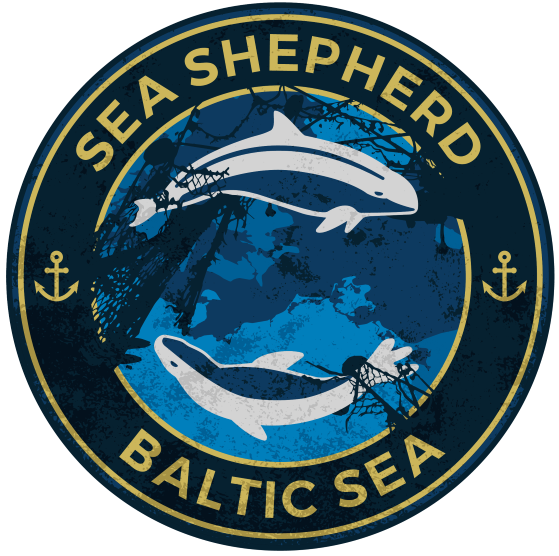Baltic Sea Campaign
Defending Marine Wildlife in the Baltic Sea

The state of the Baltic Sea is alarming and it is one of the most threatened marine areas in the world. There are many causes, but the main ones are eutrophication, overfishing, pollution, underwater noise, and the advancing climate crisis. Sea Shepherd has been actively protecting the Baltic Sea with the M/V Emanuel Bronner since 2017. In 2023, the vessel M/V Triton set off for its first mission.
Every year from June to October, we patrol the waters between Flensburg and Germany's largest island of Rügen, documenting violations of conservation laws, recovering old fishing gear, organising coastal cleanups, and making an important contribution to the preservation of biodiversity and the marine ecosystem.

Harbour porpoises in the Baltic Sea are divided into two populations: in the central Baltic Sea, they are considered critically endangered and their population size is estimated at 450–500 individuals; in the western Baltic, the population is slightly larger and considered endangered. Gillnets continue to be a major cause of mortality. The fine nets are barely visible underwater and the animals become entangled and drown. Dead porpoises with signs of injuries caused by fishing are regularly found along the coasts.
“Like many other conservation groups, we are calling for an end to gillnet fishing in the animals' habitats. If we continue to allow them to be caught as bycatch, we will ultimately seal the fate of the Baltic harbour porpoises.” - Florian Stadler, Campaign Leader, Sea Shepherd Germany.

The campaign focuses on gillnet fishing, one of the most common methods of catching herring, flatfish and other species in the Baltic Sea. During our patrols, we document the impact of gillnet fishing and report violations of current conservation laws, such as discard bans and cod catch limits. Cod can now only be landed as bycatch in EU waters of the Baltic Sea after the fishery collapsed due to climate change and overfishing.
We also address the pollution caused by fishing by removing deadly marine debris such as ghostnets from the waters. Using the right equipment and specially trained divers, the nets are located, recovered, disposed of properly or, where possible, cleaned and upcycled in an environmentally friendly manner.
On land, we organise numerous coastal cleanups along the Baltic Sea. Our teams are also busy cleaning up local lakes, rivers and other waterways in many parts of Germany.

The M/V Triton comes from Gibraltar, where it served the Royal Gibraltar Police. Built in 2013 a,d purchased by Sea Shepherd Germany in 2022, it is just under 23 metres long, 6 metres wide and has a top speed of around 28 knots.
Over the past few months, the ship has been completely repainted and several other modifications have been made to adapt the vessel to the requirements of the campaign. A net winch is now mounted on the bow, making it easier for the crew to hoist the ghost nets on board. A state-of-the-art sonar system has also been installed to make the search for ghost nets and other fishing gear more efficient. “With the Triton, we will be able to intensify our work in Germany and successfully progress active ocean conservation,” said Manuel Abraas, CEO, Sea Shepherd Germany.
For the third time in a row, the Baltic Sea Campaign is being supported by the German Postcode Lottery with €100,000.